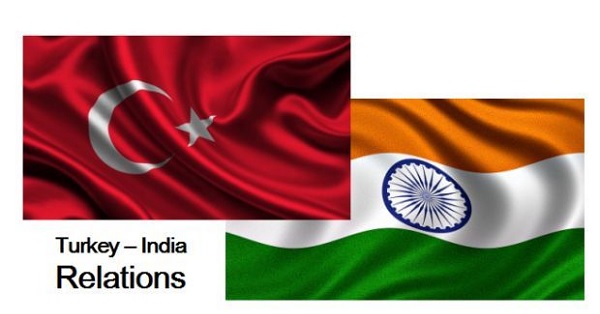
by Editor | May 25, 2021 | Economy, News
 Islamabad : (IANS) Indian Punjabi film “Ambarsariya” has been banned in Pakistan because it makes “strong references” to the Indian intelligence agency RAW.
Islamabad : (IANS) Indian Punjabi film “Ambarsariya” has been banned in Pakistan because it makes “strong references” to the Indian intelligence agency RAW.
“The movie makes strong references to Research and Analysis Wing (RAW), which is why the panel decided against it,” The Express Tribune quoted Mobasher Hasan, chairman of the Central Board of Film Certification (CBFC), as saying.
According to Hasan, a CBFC panel first voted against the movie. After the film distributor’s appeal, the full board of the CBFC reviewed it but backed the ban.
Asked if “Ambarsariya” would have been fit for release if the references to RAW had been edited out, the Tribune quoted Hasan as saying: “That would not be possible since the movie is primarily about RAW and editing would have affected its story.
“It is a film set in India and we have stopped its release because it focuses on RAW.”
Starring Diljit Dosanjh, Naveet Kaur and Monica Gill in lead roles, “Ambarsariya” follows the story of a man who lives a dual life as a member of RAW and an insurance agent, the daily said.

by Editor | May 25, 2021 | Muslim World
 Mumbai : (IANS) India’s Doordarshan and Turkey’s state broadcaster TRT will sign a MoU to collaborate for entertainment content exports worth $20 million to India by 2018, Turkish Ambassador to India Burak Akcapar said here on Thursday.
Mumbai : (IANS) India’s Doordarshan and Turkey’s state broadcaster TRT will sign a MoU to collaborate for entertainment content exports worth $20 million to India by 2018, Turkish Ambassador to India Burak Akcapar said here on Thursday.
The two state-owned companies will sign an MOU shortly, he said at the ongoing three-day FICCI Frames 2016 here on behalf of the biggest delegation of Turkish companies led by the Istanbul Chamber of Commerce and Tourism which is attending the major global entertainment conclave.
Turkey will also enhance its collaboration with Indian film industry and is in talks with MAMI Film Festival to showcase Turkish cinema for the Indian audiences in its October 2016 edition, he added.
Stating that the world is in pursuit of Turkish content, Akcapar said its original content touches lives of billions of people in around 100 countries worldwide.
“As the world’s second rapid growing country, Turkey’s export figure in content business is projected to be $1 billion by 2023,” he said.
He said Turkey’s first TV content export to India – “Feriha” on Zee Zindagi channel — has been well-received by Indian audiences with an average viewership of 36 million each week.
Spurred by its success, many Indian television networks and general entertainment channels are in discussions with Turkish content providers to roll out more Turkish serials for the Indian audiences.
The ICC has brought Turkey’s leading content industry representatives to interact with representatives of Indian media and entertainment industry at its ‘Turkey Home of Content’ stall at the FICCI Frames.
Some of the companies participating include Turkish Radio and Television Corporation, Ayyapim, Kadraj, Kanal 7, Outline Ajans, Pana Film, Tax Medya, ULKE TV and others seeking collaborations with Indian media-entertainment companies.

by Editor | May 25, 2021 | News
 New Delhi, March 25 (IANS) There are 50 million rural homes without access to electricity, union Minister Piyush Goyal said here on Friday.
New Delhi, March 25 (IANS) There are 50 million rural homes without access to electricity, union Minister Piyush Goyal said here on Friday.
Addressing a session “Making India a Global Economic Superpower” at a Conference on Young Indians, Minister of State (Independent Charge) for Power, Coal and New and Renewable Energy Goyal admitted the country could never become an economic superpower unless it ensured equal opportunities for people at the bottom of the pyramid.
“We cannot become a super economic power unless the person at the bottom of the pyramid gets equal opportunity to study, to be skilled and has the opportunity to move towards a better quality of life.”
“To my mind, lack of electricity access in villages across the country is a serious concern for us as a nation. There are about 50 million homes which do not have access to electricity,” Goyal said.
Goyal said that in Arunachal Pradesh, there were about 808 villages without any access to electricity. “While we are now working on building a grid in Sikkim and Arunachal, it will take time. Hence, we are looking at off-grid solutions in the interim.”
The minister said he felt India could become a superpower if the economies of scale are leveraged, greater degrees of transparency introduced and proper monitoring of work ensured.
“India is poised for decadal double digit growth in the days to come and is poised to become a superpower with a billion plus happy people.”
“India has the potential to transform and can move into the big league very rapidly if we leverage the economies of scale, bring in greater degrees of transparency and monitor work that has been undertaken,” he said.
Elaborating on the need to take a holistic view of the various programmes being implemented by the government, Goyal said: “There is a need to recognise the opportunities in the ecosystem and look at how these can be converted into an actionable agenda.”
Highlighting the success of one of the key programmes of the Ministry of Power, Goyal said, “The LED programme in India is going to result in savings of 100 billion units of electricity annually and will benefit the consumers directly. In monetary terms, it will lead to savings of $6.5 billion annually.”
“Given the environmental concerns, this programme will result in the reduction of about 80 million tons of carbon dioxide. This programme demonstrates how economies of scale can be leveraged to achieve a significant reduction in the cost of LED bulbs.”

by Editor | May 25, 2021 | Economy, News
 By Anil Giri
By Anil Giri
Kathmandu : (IANS) With the signing of the Transit and Transportation Agreement between Nepal and China in Beijing, there is a sense of anxiety, worry and concern in Indian strategic circles about Nepal tilting towards China. Many have commented that this has ended India’s long monopoly in Nepal in doing third country business through Indian ports and, overnight, Nepal will do business, import fuel from China and so on.
As a landlocked country, seeking transit rights is Nepal’s fundamental right and, as of now, India and Bangladesh have provided such facilities to Nepal.
Realizing that Nepal will turn to China for transit and trade rights, India, during the visit of Nepalese Prime Minister K.P. Sharma Oli last month, had agreed to provide Visakhapatnam port for Nepal’s use. As of now, Nepal is using only Haldia in Kolkata for third-country trade but it is smaller than Visakhapatnam. During the visit, India also allowed Nepal land transit via Bangladesh, implicit being that India was already aware that Nepal would turn to China.
It is being said that had India allowed Nepal this when it was proposed over a decade ago, Nepal would not have gone with China. Second, if India had not imposed an unofficial blockade, privileging one community and group’s demand, Nepal would not have tilted towards China.
After signing the Transit Agreement with China, it is widely anticipated that Nepal will do business through Chinese ports and end its dependency on India. Such interpretations, particularly in Indian strategic circles, are beyond the ground realities and one should understand that a transit treaty does not necessarily measure up to implementation.
The poor infrastructure on the Nepali side, difficult geographical terrain on both sides and without a rail link up to the Nepali border in Kerung (Gyirong in Chinese side), Nepal cannot immediately begin third country business through Chinese ports. Physical infrastructure in either side of the border is important for full use of transit rights and, on the Nepali side, it will take years to upgrade Kerung, the only transit, transportation and trade route between Nepal and China.
Second, the nearest Chinese port is Tainjin which is 3,000 km from the Nepali border and the nearest Indian port is Haldia which is just 1,000 km away. This per se makes a huge difference in doing business in terms of costs, said Nepal’s former commerce secretary Purusottam Oja.
If Nepal needs to do business through Tainjin port to Kerung, it is almost impossible to import goods via trucks or containers. The only option is by rail and Chinese officials say this will happen only by 2020.
“Of course, a further extension from Gyirong is an even longer-term plan. It’s up to geographic and technical conditions and financing ability. We believe that far in the future the two countries will be connected by rail,” Hou Yanqi, deputy head of the Chinese foreign ministry’s Asia division, said in Beijing after the meeting between Oli and Premier Li Keqiang.
“Strategically it is going to be a good deal but due to distance per se, it is going to be a very costly affair for us until there is rail service from Tainjin to the Nepal border,” said Oja. “It also depends on status of infrastructure in both sides…and paper work. Hassle free paperwork for customs and other purposes are key in transit rights,” said Oja.
Another Nepal-China trading point, Tatopani, is shut down since the April 25, 2015 earthquake and there is no official confirmation whether the Chinese side will open it up or not. In case China opens it, Nepali traders have to use trucks, containers and other light vehicles to import and export goods from Tianjin, again very costly for traders.
“I am not going to use and do business through Tanjian that is going to be three-fold expensive for us,” said Indian trader Ravi Singh, who is engaged in third-country business.
“Without stressing on connectivity, the transit agreement will not be productive,” said noted economist Bishamber Pyakurel.
“Neither it is a historic pact nor is it a non-workable one. Though it is a welcome move, its success lies in implementation,” he said in an interaction with journalists.
It should also be remembered that Nepal is doing business with India through 24 small and big trading points whereas Nepal is doing business with China only through one trading point.
Then, India has also proposed to build five rail corridors with Nepal and one is proposed to connect Uttar Pradesh and Kathmandu.
The ground realities more than make clear that the ‘China card’ remains more of an illusion but Kathmandu has finally made the strategic move that New Delhi is bound to have taken note of.
(Anil Giri can be contacted at girianil@mail.com.)

by Editor | May 25, 2021 | Muslim World
 New Delhi : (IANS) India may soon sign a memorandum of understanding (MoU) with Bahrain to prevent human trafficking. The cabinet on Thursday gave its go ahead for the MoU.
New Delhi : (IANS) India may soon sign a memorandum of understanding (MoU) with Bahrain to prevent human trafficking. The cabinet on Thursday gave its go ahead for the MoU.
Apart from preventing human trafficking, especially of women and children, the pact would aid in the rescue, recovery, repatriation and re-integration of victims of trafficking, officials said.
The MoU is expected to be signed when Home Minister Rajnath Singh visits Bahrain in the first week of April.
The pact aims to strengthen cooperation to prevent all forms of human trafficking and ensure speedy investigation and prosecution of traffickers and organised crime syndicates in either country.
“Anti-trafficking cells and task force will work on both sides to prevent human trafficking,” an official statement said.
“Police and other concerned authorities will work in close cooperation and exchange information which can be used to interdict human traffickers.
“A joint task force with representatives from both sides would be constituted to monitor the working of the MoU,” it added.
While many people from India voluntarily migrate to Bahrain to work as domestic workers or as unskilled labourers, some face conditions of forced labour after reaching Bahrain.
“It requires mutual cooperation for intelligence sharing, joint investigation and a coordinated response to the challenges of human trafficking. The MoU will help tackle all such issues,” an official said.

 Islamabad : (IANS) Indian Punjabi film “Ambarsariya” has been banned in Pakistan because it makes “strong references” to the Indian intelligence agency RAW.
Islamabad : (IANS) Indian Punjabi film “Ambarsariya” has been banned in Pakistan because it makes “strong references” to the Indian intelligence agency RAW.



